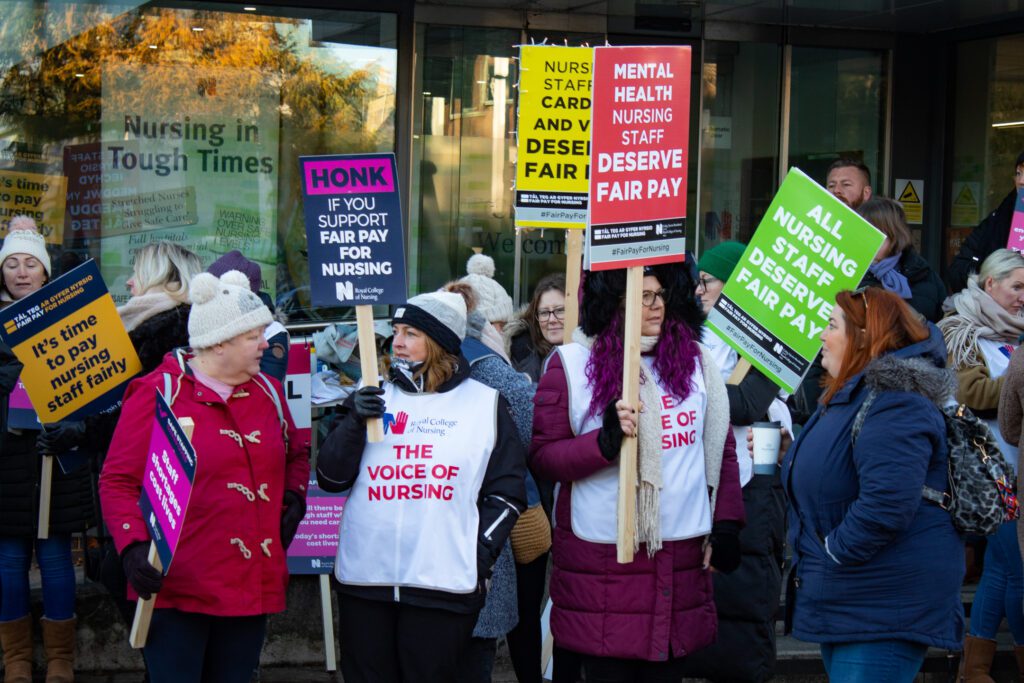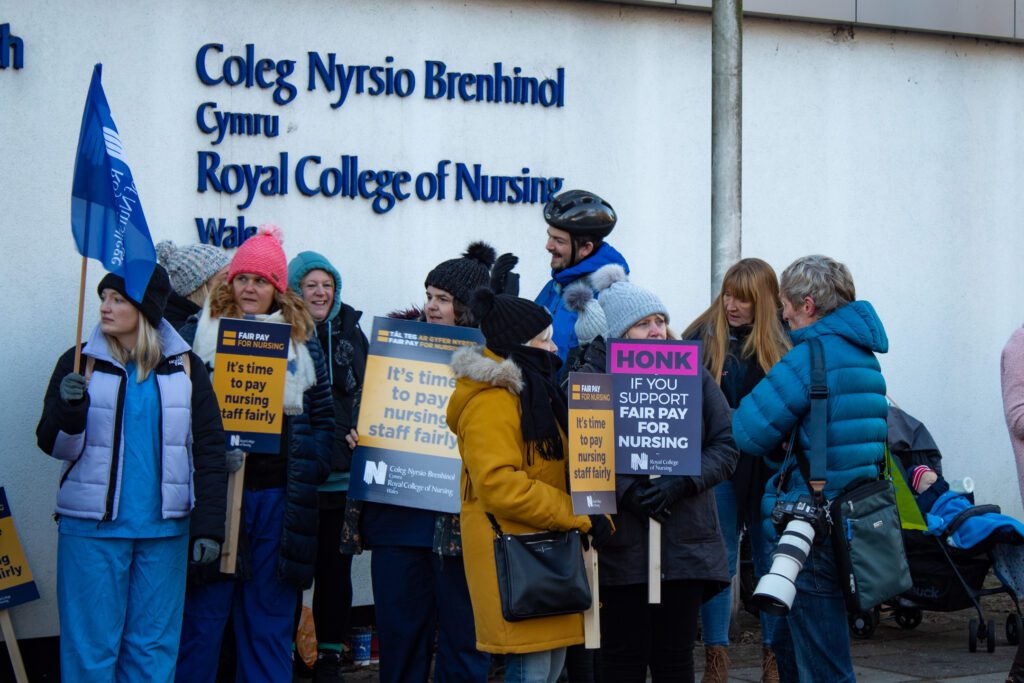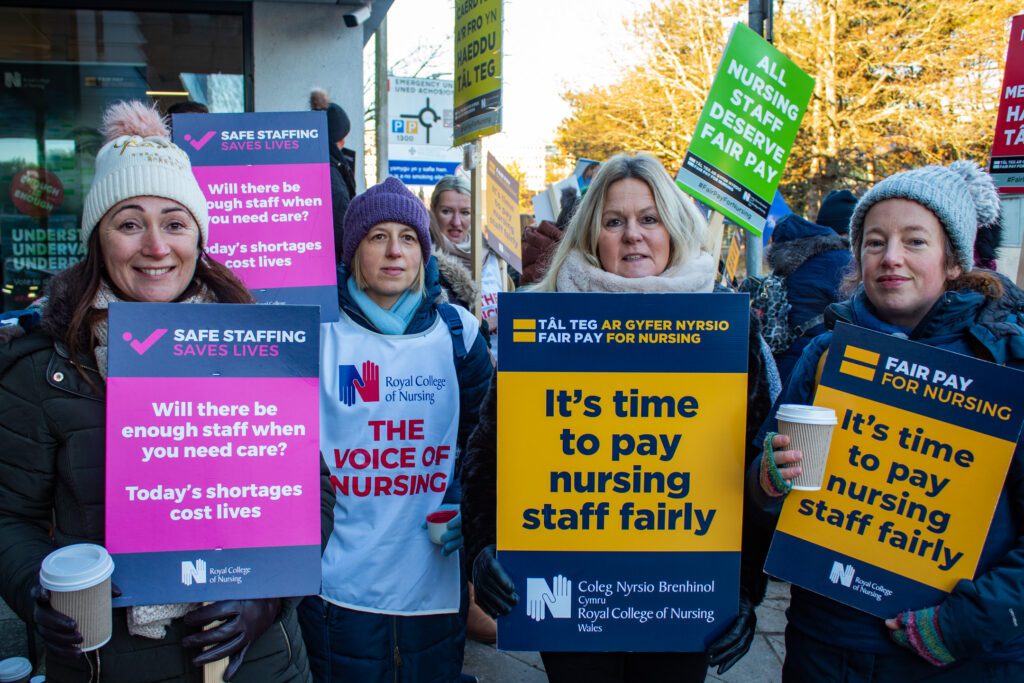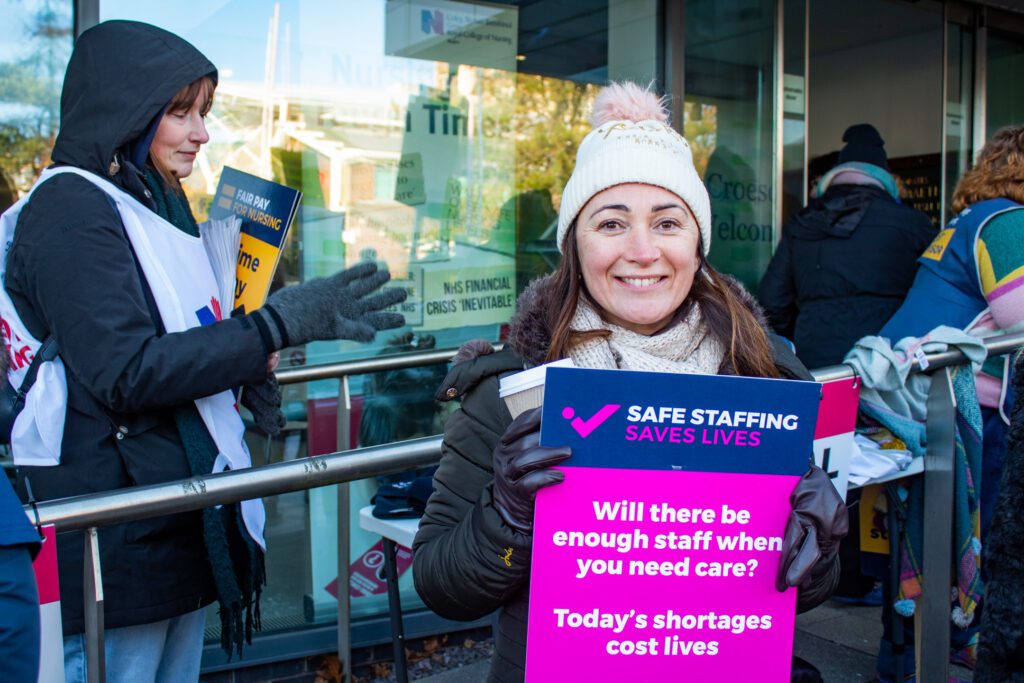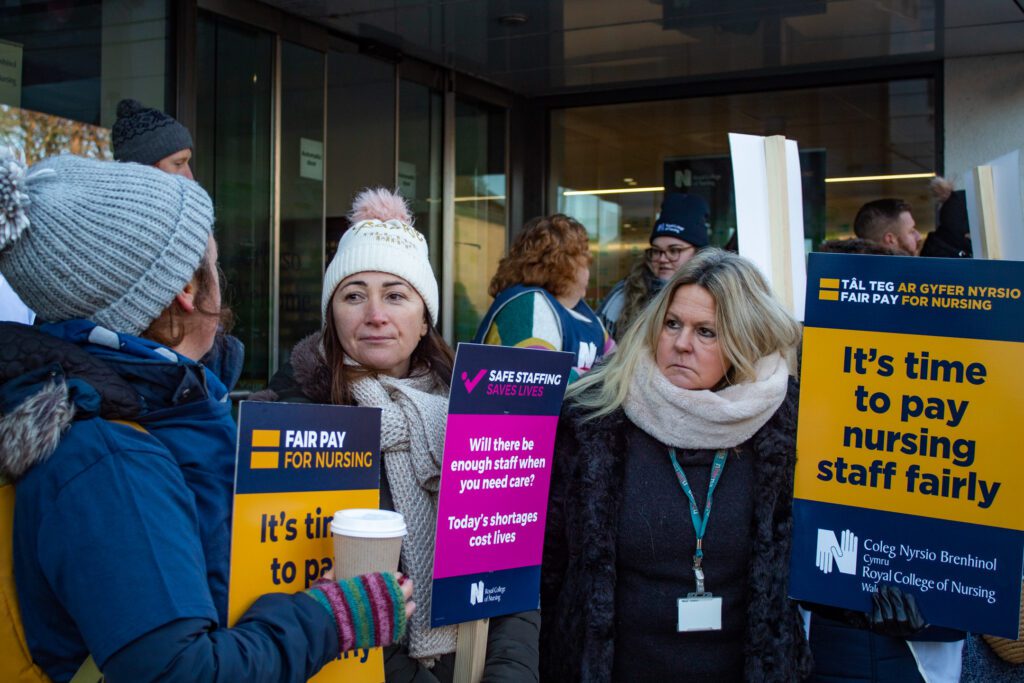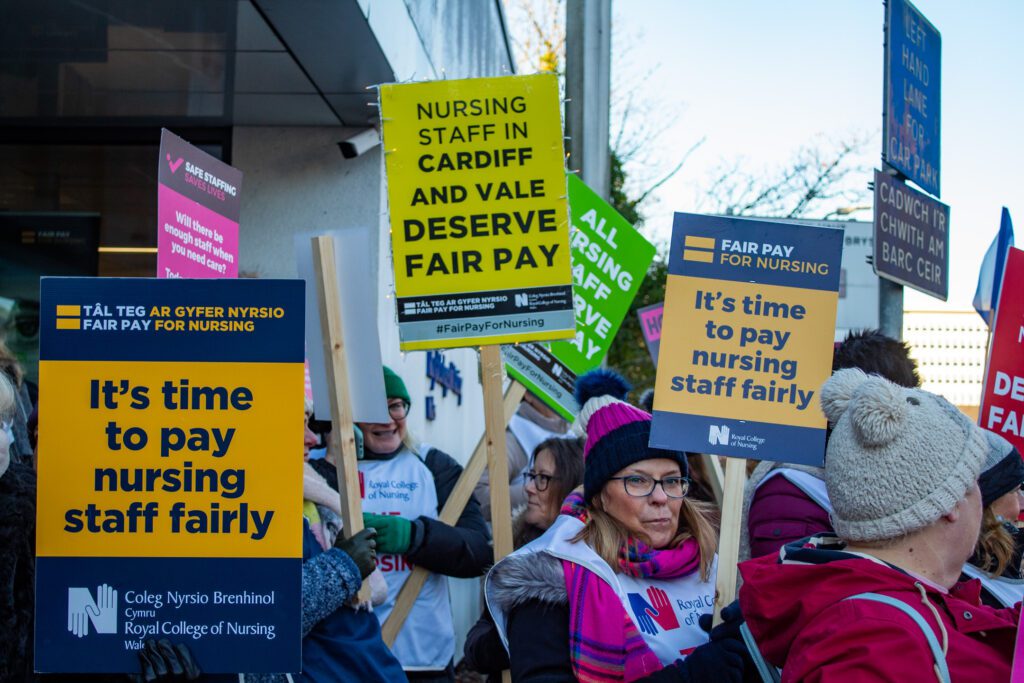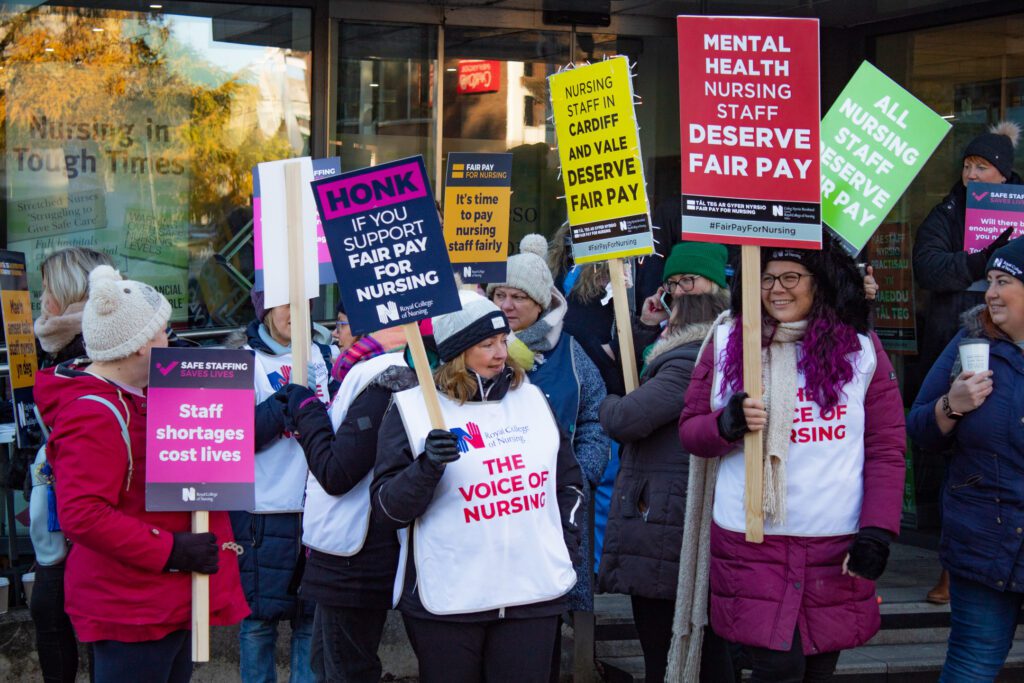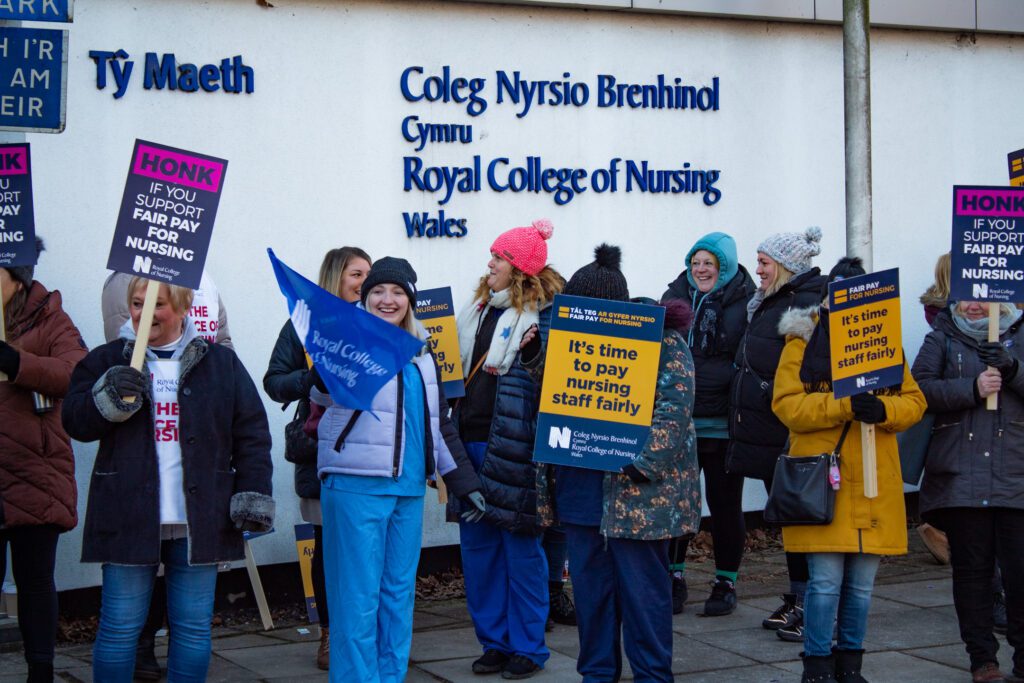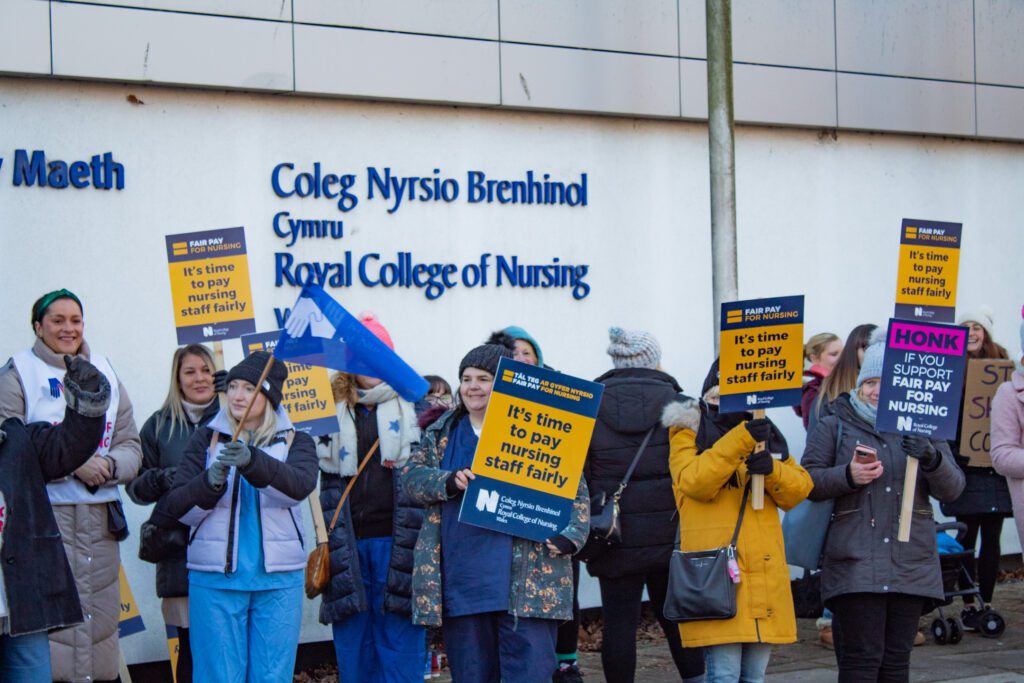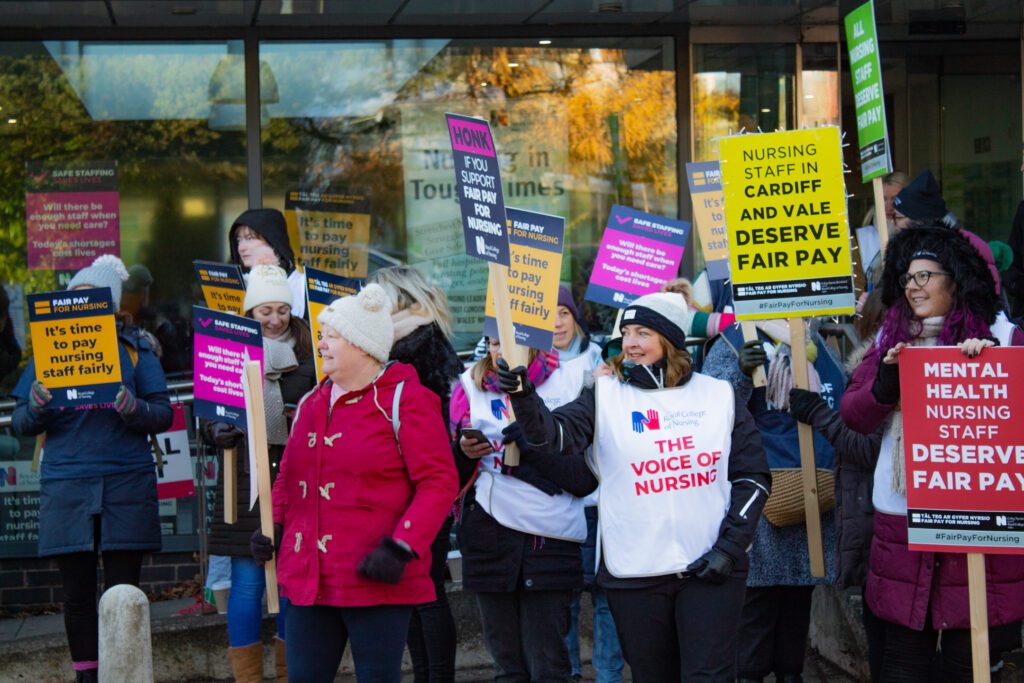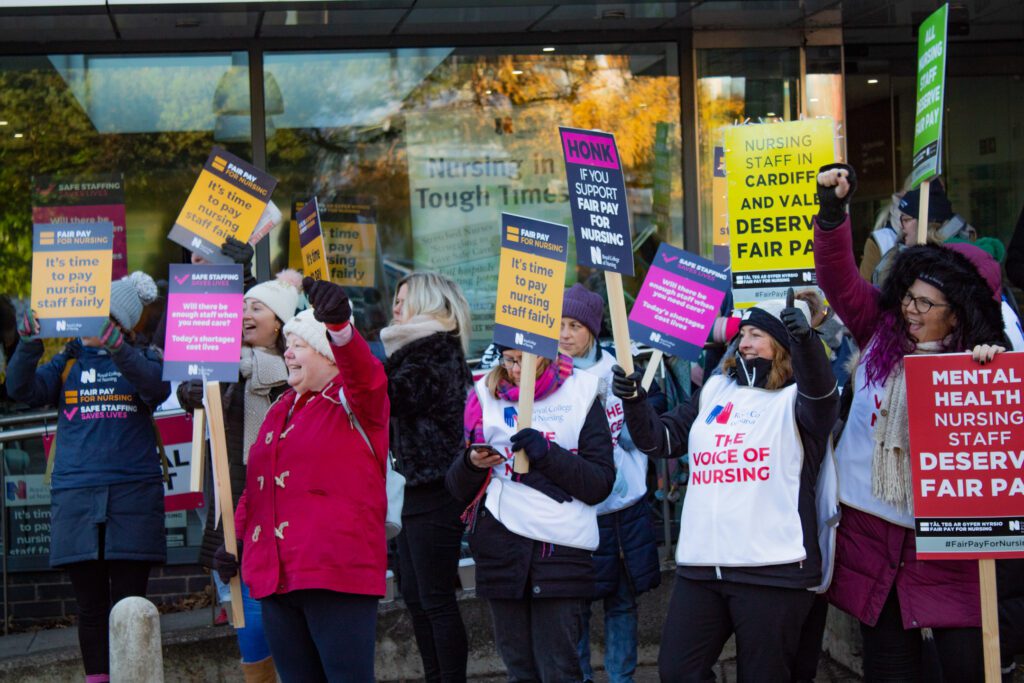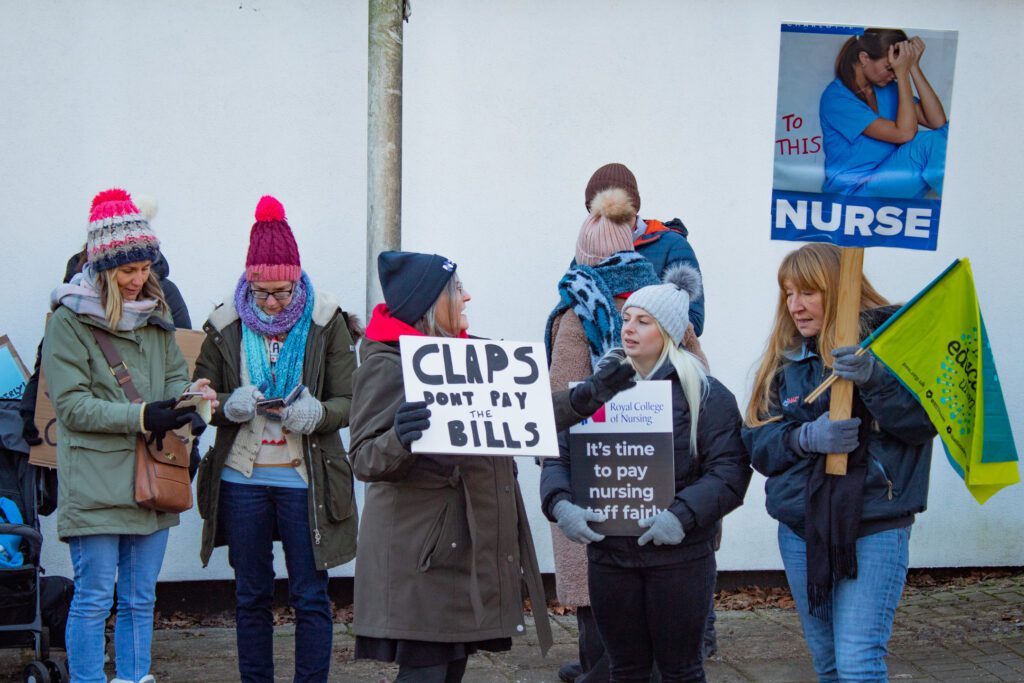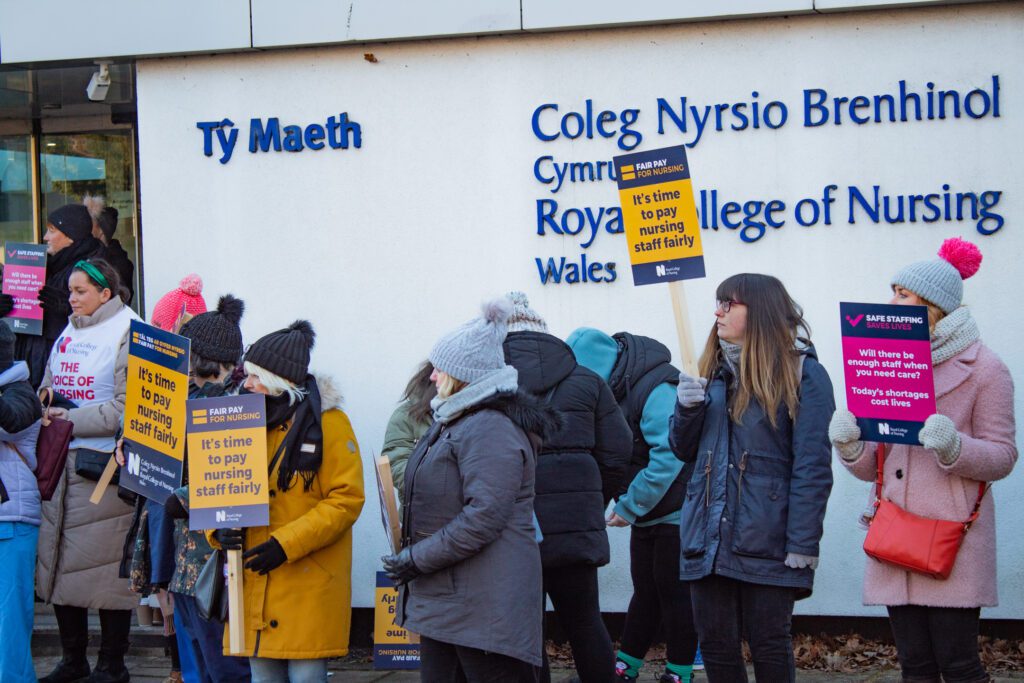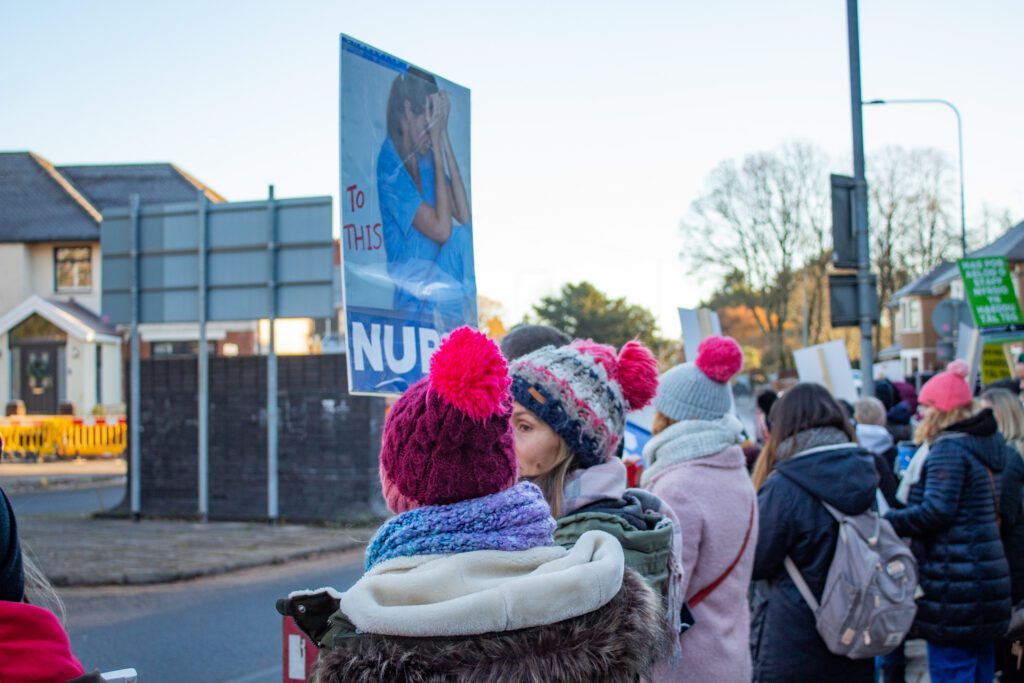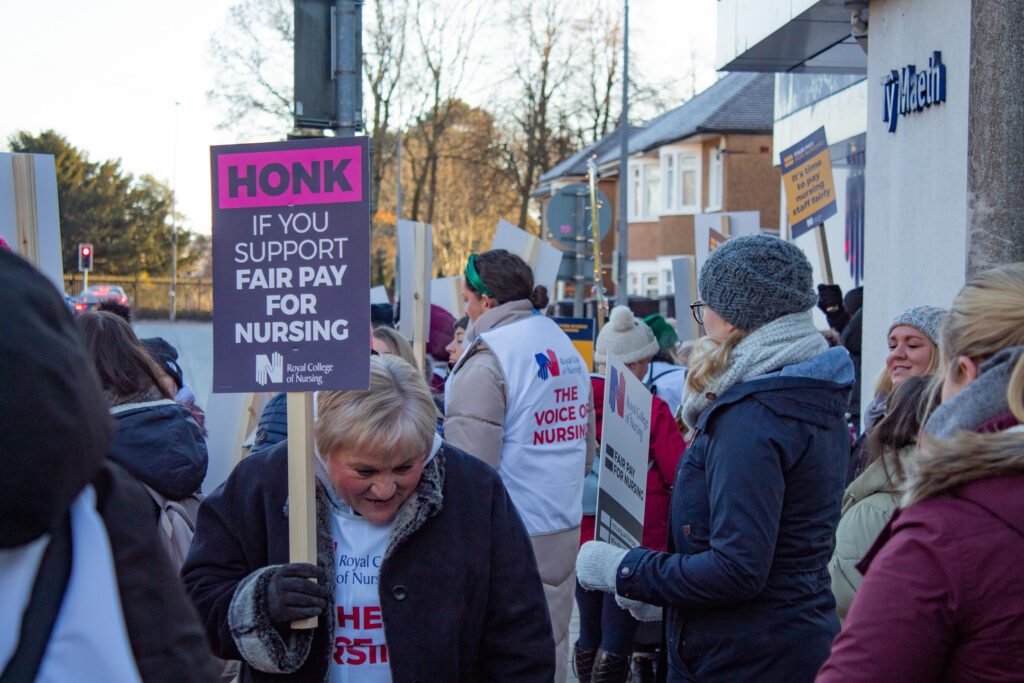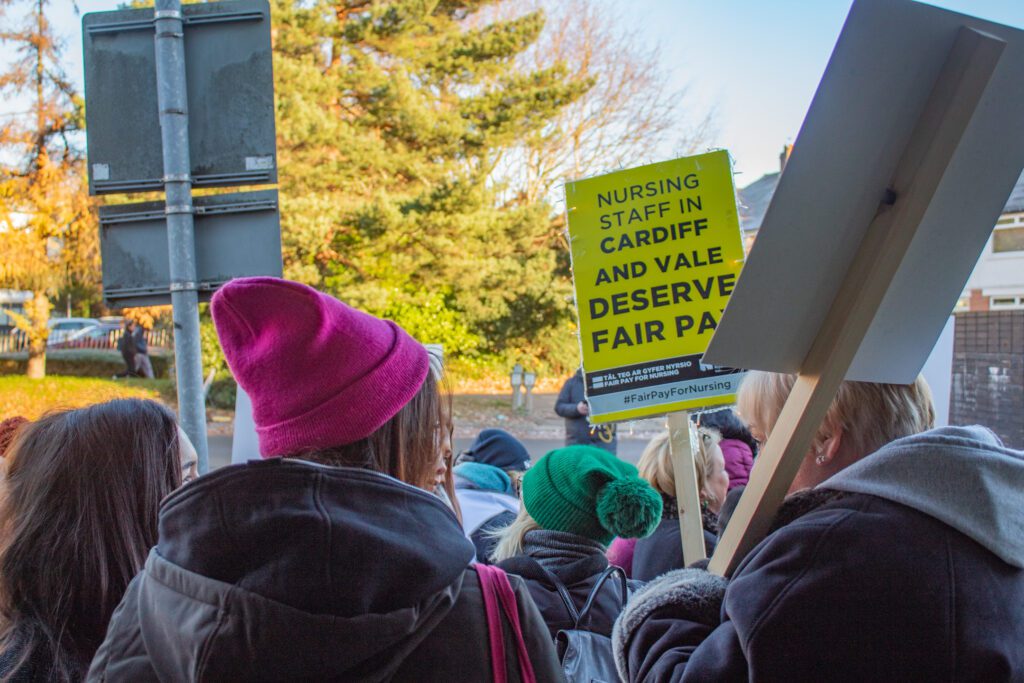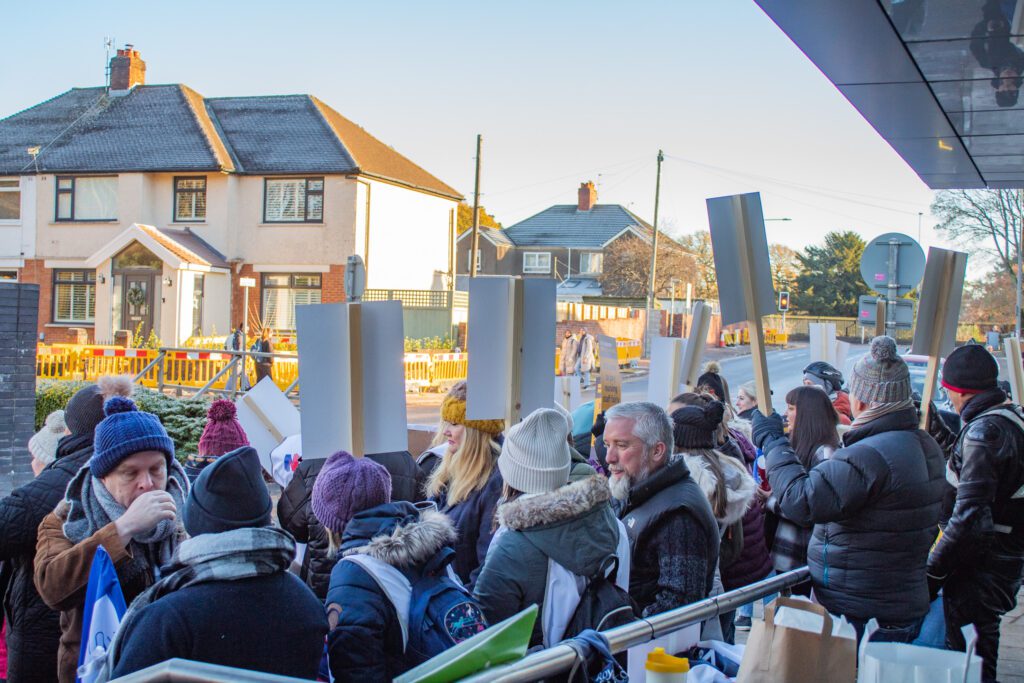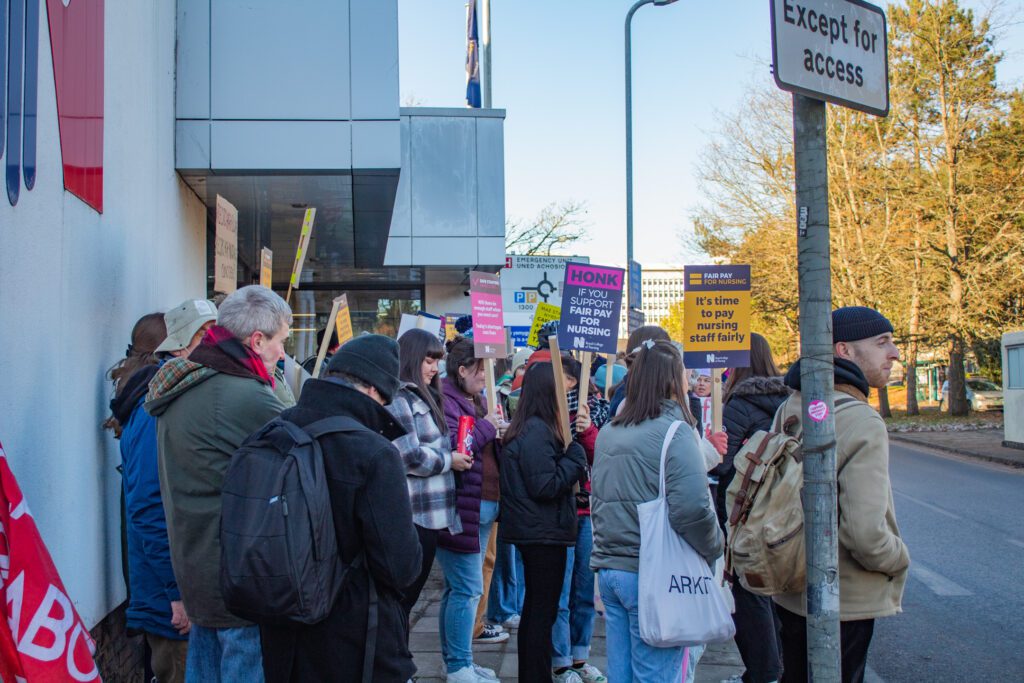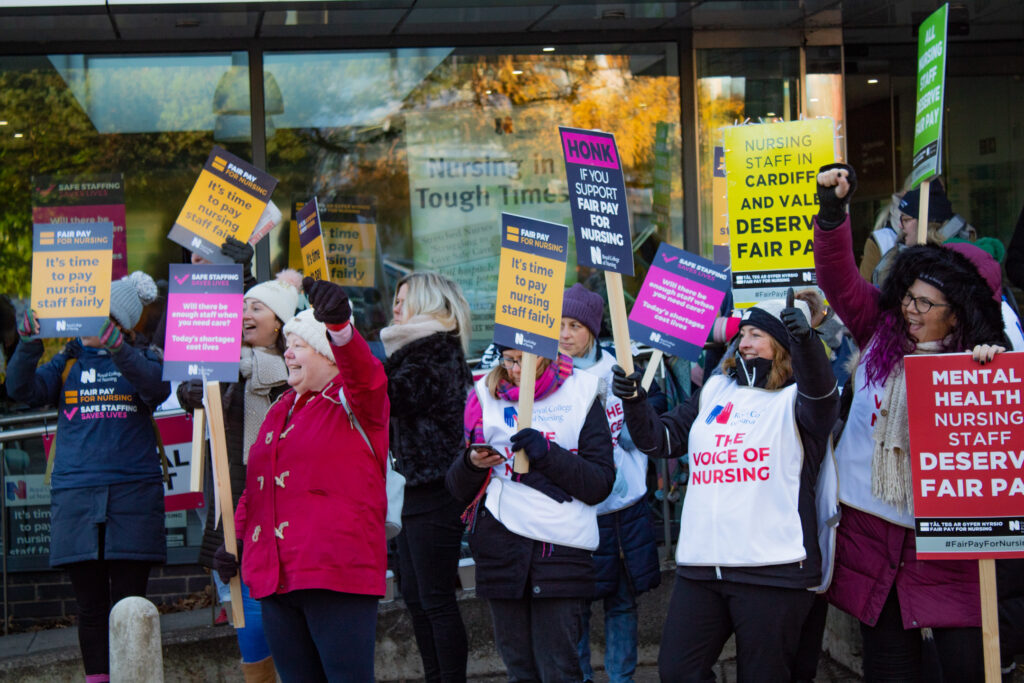
“Understaffed, Under-resourced and Undervalued” — Nurses in Cardiff Join Historic Strike
On Thursday, the Royal College of Nursing held its first-ever national strike in Wales, demanding the Welsh Government offer better pay and improves staffing to ensure patient safety.
By Adwitiya Pal. All images by Adwitiya Pal
The grass was still covered with frost from the previous night and the sun wasn’t even out yet. But dozens of nurses had already gathered in the freezing cold at Wales’ largest hospital, the University Hospital of Wales (UHW) in Cardiff, in the hopes that the government would finally listen to their calls.
The strike was announced after the Welsh Government failed to act on the Royal College of Nursing’s (RCN) demands of a better pay offer and working conditions in November, following the overwhelming vote to strike by nurses in all but one health board in Wales.
Workers backed industrial action in response to a pay rise of £1400, or just 72p an hour, offered to all health workers including nurses. The RCN say that nurses in the UK have suffered a real-terms pay cut of almost 20% since 2010, as their wages haven’t kept pace with inflation. The union is thus calling for a pay rise of approximately 17%, or 5% above inflation. Similar nurses strikes were also held in England and the north of Ireland on Thursday.
Tara Rees, a liver nurse and an RCN member for over 25 years who was present at the picket line in Cardiff, spoke to voice.wales “We are understaffed, under-resourced and undervalued. Nurses are at a stage where we are having to go to food banks and can’t meet our bills. We just need fair pay for our work.”
Although there was some nervousness about taking strike action for the first time , nurses at the picket lines were pleasantly surprised by the massive turnout and the public support on display, evidenced by the multiple honks of passing cars to demonstrate their solidarity.
“It’s -6.5 degrees and we were still determined to show up because we truly believe that things have to turn around,” said Tara Rees as a black cab drove by honking, with a thumbs-up sticking out the window. “Up until now all our attempts have been unsuccessful, and that’s why we’re here today. And thankfully public support, as you can see, has been fantastic.”

According to a recent poll in Wales, almost two-thirds of the public is in favour of the nurses’ strikes.
Prior to the strike, the RCN had planned for roughly six nurses to be picketing at a time, however, almost 40 people, including nurses from different unions like GMB and Unite, and even a couple of NHS workers besides nurses had gathered at Ty Maeth, one of the two picket lines at UHW, marking a historic day for the profession.
Besides debilitating pay, staffing is another major issue for nurses. In the last year, 25,000 nursing staff across the UK left the Nursing and Midwifery Council register. In Wales alone, there are 3000 vacancies, up from 1719 in 2021.
The poor staffing levels have completely compromised patient safety in hospitals, according to RCN. They claimed that because of the permanent staffing crisis, patients are at the same risk on a strike day as they would be on a non-strike day when wards are normally staffed. Besides, life-preserving services such as chemotherapy, dialysis and other intensive care units were exempt from strike action.
“Wards are all staffed as they would be on a night shift or on a Christmas day,” said Janice Aspinall, ward nurse and RCN’s safety rep. “The RCN has done everything it can to ensure that the patients stay safe. We are not going to compromise patient safety at any point.”
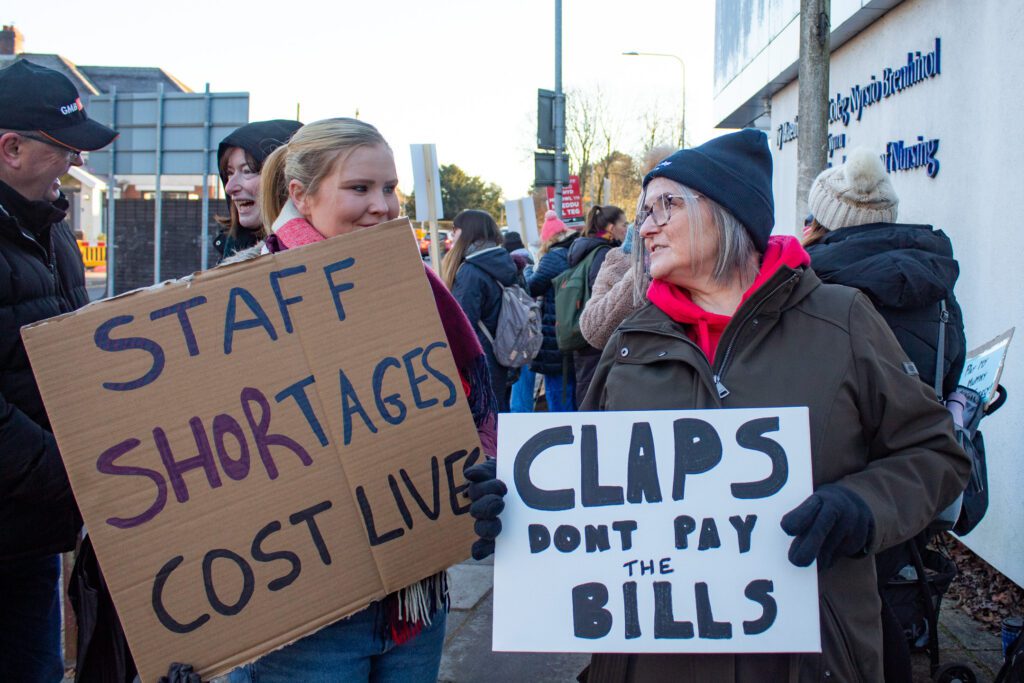
However, it is not just the patients’ safety that is at risk — there are accounts of nurses suffering from anxiety and depression. Will Gleeson, a UHW nurse present on the picket lines told me that he was diagnosed with mental health issues in January last year, and yet continued working through the pandemic.
“I was working 70 hours a week and getting paid for only 40, and I didn’t bat an eye. We were clapped for during Covid, but now suddenly we are the villains, we are lazy and selfish, we are the ones who don’t care about the patients. It’s a complete betrayal,” said Will..
Although some nurses felt that the management in the hospitals had been supportive of their strike, Will said that he had faced disproportionate criticism and an ill attitude from the higher-ups ever since the strikes were announced and he had made his inclination to walk out public.
Remembering back when he first joined the NHS in 2008, Will said that things had changed so much that the system is almost unrecognisable from what it once was. “We were already in the middle of the recession, so yes there were deficiencies, but nothing as critical as it is now,” he said. “If the government wanted to help the NHS, they could have. But the Tories came in and enacted all these austerity policies and everything’s gone to the ground now.”
While Will said that he understands Welsh Labour are heavily reliant on funding from Westminster, he strongly feels that Mark Drakeford’s government can do a lot more to help nurses. A major sore point has been the NHS’ reliance on private agencies, with the Welsh Government spending £133.4 million last year on agency nursing.
“They are bringing in agency nurses because there aren’t enough nurses in the wards. However, the difference between what we get paid and what they are paid is astronomical. I have nothing against agency nurses, but they are there in the first place because NHS nurses are going and joining the agencies as we don’t get paid enough,” said Will.
Will is hoping that the Welsh Government finally listens to their demands, but the First Minister and the Health Minister, Eluned Morgan, seem disinterested in opening talks with the union. Pat Cullen, RCN’s General Secretary, who came to the Cardiff pickets from London expressed her disappointment at the Welsh Labour leader for not visiting a single picket line on a day when thousands of nurses in the country had staged a walkout.
While this was the first of the two planned strikes by RCN, with the next being on Tuesday 20 December, Pat Cullen told Sky News that the government’s refusal to discuss pay and working conditions would mean that they’d have to start looking at further dates for strikes next year.
As Wales and the UK approach Christmas with workers from across different sectors turning to strike action amidst inflation and the cost of living crisis, there have been questions if there could be a more coordinated approach to the strikes.
Rail workers from the RMT and Royal Mail workers from the CWU held strikes throughout last week, and they are forced to continue them in the coming weeks.
Ambulance workers from the GMB union are also scheduled to walk out on 21 and 28 December in Wales, as are those in UNISON and Unite in England.

Wales TUC’s Developing and Organising Officer Amarjite Singh, who was present at the nurses’ strike to show solidarity, feels that the strikes have been coming for a long time, but more needs to be done to pile up pressure on the government.
“Unions are going to have to look at their strategies of how they conduct industrial action. If they’re not making an impact, do they join forces and say this is how we can go the extra mile and put pressure on the government and the employer,” asked Amarjite, who recently joined the Wales TUC after working 36 years in the Royal Mail and serving 15 years as a branch rep for CWU.
“I think there’s already a conversation with the General Secretaries of how they’re going to move further next year, and how they can coordinate industrial action together. There is a will to do that, and we’ll probably see that in the new year,” he said.

